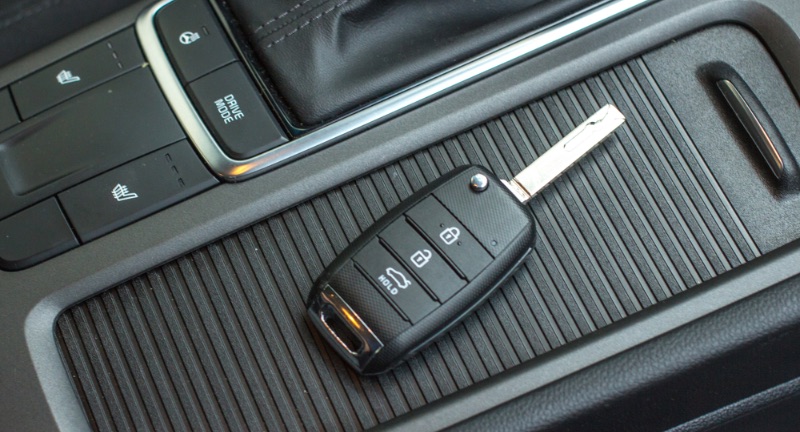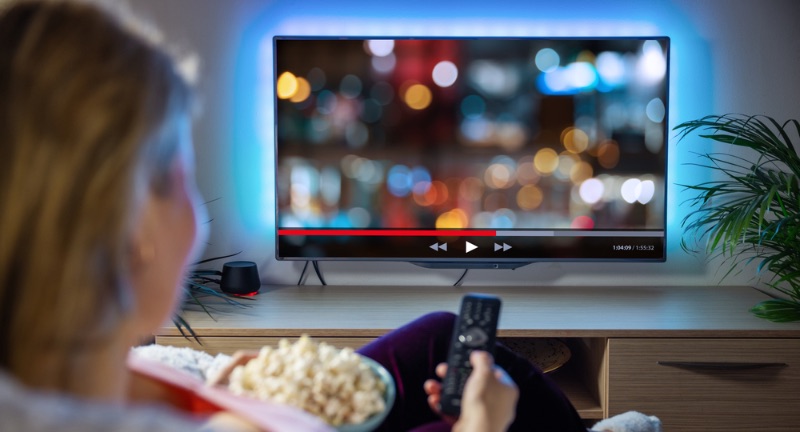NEWS
21 Items Savvy Shoppers Skip
Published
9 months agoon

Shutterstock
Managing personal finances often requires identifying ways to cut expenses without diminishing the quality of life, a principle embraced by those who practice frugality. Frugal individuals excel at prioritizing their spending by resisting the allure of brand names and the high costs of the latest gadgets.
This strategy does not mean living in deprivation; rather, it involves making informed choices that lead to both savings and satisfaction. By focusing on value, frugal people find a balance between cost and enjoyment. Here are 21 common things that frugal individuals typically avoid.
Expensive Or Designer Decor

Shutterstock
Individuals who prioritize frugality often steer clear of spending large sums on designer home decor and furniture, instead choosing more affordable or second-hand alternatives. They find joy in customizing their living spaces by upcycling items, shopping at thrift stores, or engaging in DIY projects. This not only imparts a unique character to their homes but also avoids the high costs associated with designer items. This method of decorating not only conserves money but also fosters a more creative and individualized home atmosphere.
Premium Gasoline

Shutterstock
Cost-conscious drivers avoid spending extra on premium gasoline unless their vehicle specifically requires it. They recognize that for the majority of cars, regular unleaded fuel is sufficient and that premium gasoline does not provide additional advantages. By consistently choosing regular fuel, they manage to save a significant amount on each fill-up, leading to substantial savings over time. This decision is part of a larger mindset of avoiding unnecessary upgrades or services.
Expensive Or Overpriced Coffee

Shutterstock
Regular visits to coffee shops can become an expensive routine that budget-conscious people tend to avoid. Instead, they usually purchase a quality coffee machine and master the art of making their preferred beverages at home. This approach significantly reduces their expenses over time and provides the flexibility to tailor their coffee to their precise preferences. As a result, visiting a café turns into a special indulgence rather than an everyday requirement.
Bottled Water

Shutterstock
The cost of bottled water accumulates rapidly, becoming an avoidable expense for budget-conscious individuals. They favor using refillable bottles and tap water, potentially filtered if necessary, to fulfill their hydration requirements. This practice benefits both their finances and the environment by reducing plastic waste. For additional convenience, they often carry their water bottles with them, ensuring they remain hydrated without incurring extra costs.
High-End Fashion

Shutterstock
Rather than pursuing the newest trends and splurging on luxury brands, budget-conscious individuals prioritize quality, timeless items that endure longer and offer greater value. They frequently explore second-hand stores, online resale platforms, or end-of-season sales to acquire high-quality clothing at a reduced cost. This method not only conserves money but also promotes a more sustainable and unique style. By investing in versatile pieces, they minimize the need for frequent shopping, thereby saving more money.
New Cars

Shutterstock
For budget-conscious buyers, the rapid depreciation of new cars immediately after leaving the dealership makes them less appealing. Instead, they opt for well-maintained used vehicles, which can provide many more years of service at a significantly lower cost. By avoiding the need for financing and reducing the higher insurance rates often associated with new cars, buyers can save a considerable amount of money. Additionally, keeping a car for a longer period and maintaining it properly further enhances long-term savings.
Smartphone Apps

Shutterstock
Individuals mindful of their budgets often avoid the allure of purchasing the latest paid apps and games. Instead, they opt for free alternatives that frequently offer comparable features or wait for discounts or free promotions on paid apps. This prudent approach to app acquisition helps them steer clear of minor expenses that can rapidly accumulate. By focusing only on essential or highly coveted apps, they can enjoy their digital devices without the fear of overspending.
Gym or Health Club Memberships

Shutterstock
Considering the high cost of gym memberships, budget-conscious individuals seek other methods to maintain their fitness without the recurring expenses. They may opt for outdoor activities such as jogging, cycling, or bodyweight exercises, or follow online workout programs from the comfort of their homes. Additionally, community centers frequently provide free or low-cost fitness classes, which they readily take advantage of. This strategy not only helps in saving money but also integrates exercise more conveniently into their everyday lives.
Extended Warranties

Shutterstock
Frugal-minded individuals view extended warranties as unnecessary expenses that rarely prove beneficial. They tend to put their faith in the initial quality of the product and its included standard warranty. The common perception is that most items will not require repairs during the extended warranty timeframe. Additionally, the money saved by foregoing extended warranties can be reserved for any potential future repairs.
Impulse Purchases

Shutterstock
Frugal individuals understand the potential risk of impulse buys, seeing them as a swift path to budget problems. To manage this, they adhere to a rule of delaying purchases for 24-48 hours to assess their true necessity. This pause allows them to distinguish between their wants and needs, thereby cutting down on needless spending. By steering clear of impulsive shopping, they can use their resources more efficiently to achieve their financial objectives.
Luxury Beauty Products

Shutterstock
Mindful of the high prices associated with luxury beauty items, budget-conscious consumers seek out affordable brands that deliver quality. They depend on reviews and samples to discover cost-effective products that meet their needs. This strategy enables them to sustain their beauty routines without overspending. Furthermore, they often restrict their makeup use to essential items, which helps in keeping expenses low.
Expensive Vacations

Shutterstock
Rather than spending extravagantly on high-end vacations, budget-conscious travelers search for cost-effective travel alternatives. They may choose to travel during the off-season to benefit from reduced prices and lesser crowds, utilize reward points for covering flight or hotel expenses, or explore nearby locations for brief trips. By planning in advance and seeking out discounts, these travelers can enjoy their trips without straining their finances. This thoughtful method of vacation planning enables them to create meaningful experiences while maintaining financial well-being.
Convenience Foods

Shutterstock
Pre-cut fruits and vegetables, pre-made meals, and other convenience foods often come with a significant markup due to the labor required for their preparation. Those who are budget-conscious tend to buy whole foods and prepare meals themselves, leading to notable cost savings. This approach not only helps manage the budget more effectively but also promotes a healthier diet, as homemade meals usually contain fewer additives and preservatives. Dedicating time each week to meal prep is considered a worthwhile exchange for the financial savings and health advantages.
Name Brand Products

Shutterstock
Individuals who aim to be thrifty frequently opt for generic or store brands instead of well-known brand names, particularly for everyday essentials such as groceries and medications, where the quality is often similar. They understand that a substantial portion of the cost of brand-name products is allocated to marketing and packaging. By selecting off-brand items, they can save a considerable amount of money without compromising quality. Over time, these savings accumulate, providing financial flexibility in other areas.
Fast Fashion

Shutterstock
Aware of the significant environmental and financial ramifications of fast fashion, conscientious consumers steer clear of poorly made garments with limited longevity. Instead, they opt to invest in superior quality pieces which, although potentially pricier at the outset, provide extended wear over multiple seasons. Additionally, shopping at thrift stores or exchanging clothes with friends has gained popularity. This intentional fashion approach not only economizes but also advances a more sustainable way of living.
Cable TV

Shutterstock
Due to the high cost of cable subscriptions, many frugal individuals opt for streaming services or free digital content available online. They tend to carefully choose one or two streaming services that align with their viewing preferences and often share accounts with family or friends to share the expense. Additionally, free over-the-air channels offer extra entertainment without the burden of monthly bills. This selective method of consuming content significantly reduces entertainment costs.
Bank Fees

Shutterstock
Smart savers minimize bank fees by opting for no-fee accounts, using their bank’s ATMs to sidestep withdrawal charges, and maintaining a balance above the minimum requirement to avoid service charges. They frequently review their bank statements to identify any unexpected fees and address them immediately. By managing their accounts diligently, they ensure their money remains intact, free from unnecessary charges. This proactive approach helps preserve their financial well-being and prevent wasteful expenditures on avoidable fees.
Subscription Services

Shutterstock
As subscription services become more common, financially conscious individuals carefully evaluate each service to ensure it offers sufficient value for its price. They prioritize subscriptions that they use regularly and discontinue those that are seldom utilized. Additionally, sharing subscription plans with family or friends can help distribute the cost. This discerning method helps avoid excessive monthly fees that can strain their budget.
Trendy Technology Products

Shutterstock
Frugal individuals often resist the allure of the latest gadgets, opting instead to use their current devices until they are no longer functional. They understand that technology evolves rapidly, making it impractical to keep up with every new release. By delaying upgrades, they not only save money but also contribute to reducing electronic waste. When it is finally time to upgrade, they often choose refurbished or slightly older models to secure the best value.
Dining Out Regularly

Shutterstock
Frequenting restaurants or opting for takeout can become expensive rapidly. Therefore, those who are budget-conscious often favor cooking at home. They view this practice as a method to not only cut costs but also to have control over their dietary intake. Through strategic meal planning and smart shopping, they are able to enjoy a variety of tasty and economical meals. When they do visit a restaurant, it is considered a special treat rather than a habitual practice.
Affordable Hobbies

Shutterstock
Hobbies can sometimes be expensive, but budget-conscious individuals find ways to indulge in their passions without breaking the bank. They seek out free or affordable resources, purchase used equipment, and join community groups with similar interests. By employing creativity and resourcefulness, they can enjoy their hobbies in a cost-effective manner. This approach not only enhances their leisure experience but also prevents their hobbies from becoming a financial strain.
Conclusion

Shutterstock
Embracing frugality doesn’t mean missing out on life’s joys; it makes those joys more sustainable. By spending wisely, individuals can enjoy rich experiences and satisfaction without the burden of unnecessary debt or clutter. Choosing not to spend on certain items highlights the value of mindful consumption, where each decision contributes to a balanced and fulfilling life. As we’ve explored 21 areas where frugal people save, it’s clear that financial freedom is achieved not by how much you earn, but by how wisely you spend.
More Money + Investing
-


20 Great Low Population Places In America To Retire In
-


18 Ultra-Rare U.S. Stamps Worth a Fortune
-


Want the Job? Avoid Asking These 22 Interview Questions
-


25 Genius Staging Tips to Speed Up Your Home Sale
-


16 Ultra-Luxurious Vacations Worth Every Penny
-


25 Reasons Employers Hesitate to Hire Gen Z Workers
-


21 Energy-Hungry Home Gadgets That Spike Your Monthly Power Bill
-


24 Cars to Buy Now Before Their Value Skyrockets
-


21 Electric Vehicle Problems Owners Discover Months After Buying
-


20 WWII Military Marvels That Redefined Warfare
-


Rue21 Bows Out: Another Retailer Closes All Doors
-


Coach AK: Empathy is a ‘Must-Have’ For Building Successful Business…
